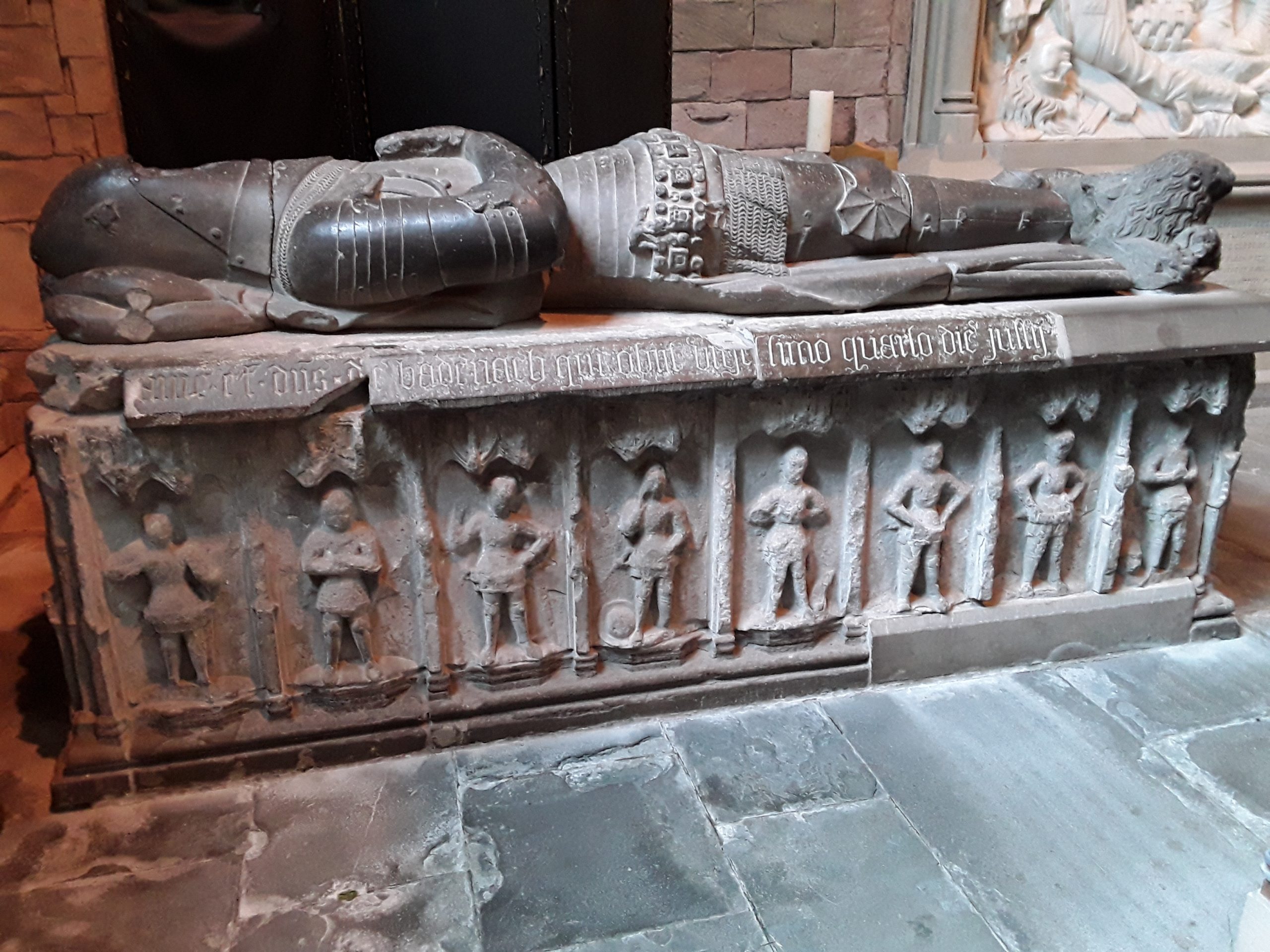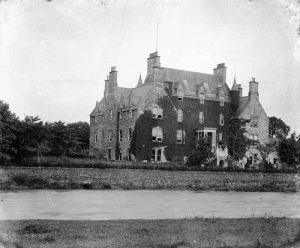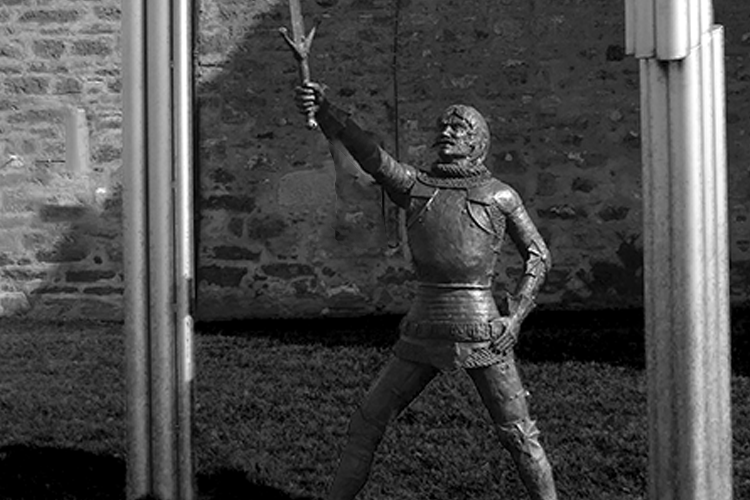Having done some digging on the various references to Badenoch in this area and reading about the infamous Wolf of Badenoch, I’m swaying a little on just how fierce a tyrant he was compared to his peers, who all ruled very firmly with their sword at this time. What is certain is that there’s no absolute certainty.
The Wolf is painted as a brute of a man, but it’s worth noting that his canine title was only granted many years after his death by a disgruntled clergyman, probably in describing the plundering of Pluscarden Abbey and reckless burning of Elgin Cathedral. During his lifetime, he was allegedly known as ‘Great Alexander the King’s son’ … a far cry from the wild wolf legacy firmly in place nowadays.
Alexander Stewart, great-grandson of Robert the Bruce, was no stranger to being on the wrong side of church hierarchy and, no surprise I suppose, these frictions were rooted in money, land and power. As was the custom, he had married for political reasons the landed widow, Countess Euphemia, who was unable to give him an heir. He became devoted to his mistress who gave him four sons. Euphemia was naturally furious and appealed to the Bishop, who then forced Alexander to return to his wife.
The Wolf’s subsequent rampaging seemed to be entirely aimed at revenge on the church for backing him into a corner and interfering in his private life. But he had gone too far and anyone who had been sympathetic to him soon changed their view, particularly as he had been disgraced with ex-communication. His wife got her divorce and Alexander resigned his political stance to live a less tumultuous life.
It’s said the lone Wolf did repent and undertake penance in Perth, allowing him to be buried in Dunkeld Cathedral. There’s no doubt he was a gruesome character who wielded his sword to get his way, but I’m not convinced he was the worst character of that era. There’s no smoke without fire, but the truth is probably somewhere in between the lines of the archives.
His illegitimate son, Alexander, Earl of Mar, apparently didn’t inherit his father’s terrifying ways. He’s reported as a man of honour, commanding forces at the Battle of Harlaw, a fierce Scottish Clan battle near Inverurie, and eventually becoming a special ambassador to France. Once again, it’s interesting that history records that he kept the peace with his effective ability to keep his men in check and to use their force to protect his extensive lands across Moray and Aberdeenshire. Bloodshed was still commonplace in the ongoing power struggles for land in the north, but it seems this Wolf cub learned to be more cunning in his scheming to get his own way. Rudyard Kipling is quoted to have said ‘the strength of the wolf is in the pack’… I believe the young Alexander realised that working together was more lucrative than his father’s unruly isolated existence. Power remained the most crucial ambition, only the strategy had changed …


